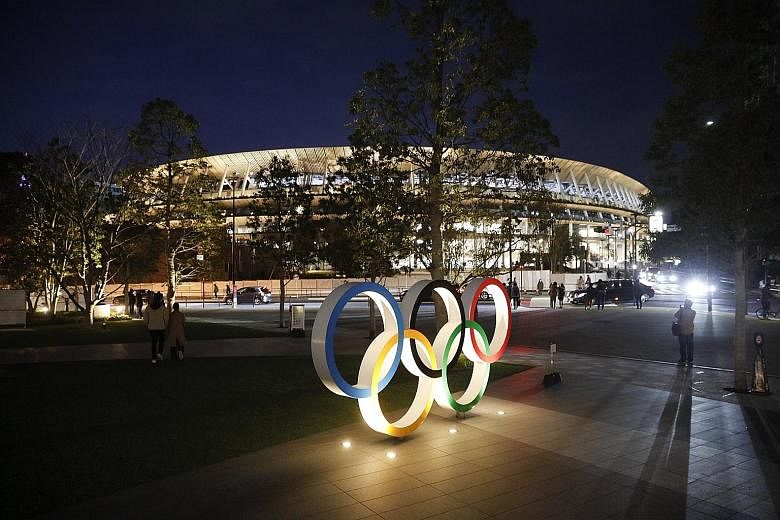TOKYO • Tokyo Olympic organisers said yesterday they are spending 1.35 trillion yen (S$16.7 billion) to stage next year's Games.
They said the expenditure is unchanged from a year ago, while sponsorship and ticket sales have generated a contingency fund of an extra US$30 million (S$41 million).
However, Japan's National Audit Board, in a 177-page report prepared for the national legislature, said next year's Olympics will cost much more than organisers say.
The audit lists an added US$9.7 billion it says are Olympic-related costs that have not been included.
In addition, the city of Tokyo has previously said it would spend another US$7.4 billion on Olympic-related projects.
Tokyo Governor Yuriko Koike said at the time the spending was "for projects directly and indirectly related to the Games".
She said this included building barrier-free facilities for Paralympic athletes, training programmes for volunteers, and advertising and tourism plans.
Organisers argue that many of these costs are not tied directly to the Olympics.
The audit board, however, came up with similar findings a year ago.
"As in the previous year, their report did not classify the cost of these items and activities based on their direct relevance to the Games," Tokyo organisers said in a statement to the Associated Press.
"It aggregated a wide range of projects that could be seen as contributing to the Games, including those that were implemented without regard to the Games."
The respected Japanese financial newspaper Nikkei and the daily Asahi also calculated Olympic costs.
They said spending was far above what organisers contend and placed overall spending at about 3 trillion yen.
The audit board report urged more transparency.
"In order to disclose information to the public and gain their understanding about operations that the government should shoulder, the government Olympic and Paralympic office should disclose more by grasping the overall picture of the operations and costs," it said.
The only non-public money being spent to fund the Olympics is from the privately funded, US$5.6 billion operating budget. Revenue for this budget comes from sponsorships, ticket sales, and marketing - and through a contribution from the International Olympic Committee (IOC).
The rest is taxpayer money from the national government, the city of Tokyo, and other government bodies.
When Tokyo was awarded the Olympics in 2013, the bid committee projected that total costs would be US$7.3 billion.
Organisers reported this week that demand in Japan for Olympic tickets is about 20 times over supply. This has led to criticism by Japanese citizens upset they cannot get tickets to an Olympics they are funding through their taxes.
Organisers also said yesterday it has yet to be decided who will foot the bill for the IOC's decision to move the marathon and race walking events to of Sapporo.
"If the IOC agrees to take the burden then they will. If there is any part IOC is not covering the fee and Tokyo has to bear, then I think we will use the contingency (fund)," said Tokyo 2020's finance director Gakuji Ito.
ASSOCIATED PRESS, REUTERS

